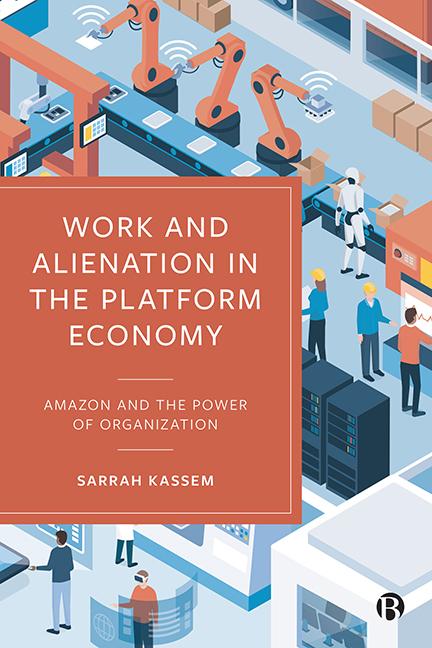5 - Contextualizing Amazon’s Growing Empire
Published online by Cambridge University Press: 18 January 2024
Summary
Amazon spreads its roots across the platform economy, becoming foundational to it and making it increasingly difficult not to encounter Amazon in one way or another while using the Internet. Essentially, it constitutes an example “of a corporation thriving under the current organization of capitalism which, in absence of regulatory frameworks, favours market concentration and dominance” (Brevini, 2021: 65). I trace in this chapter Amazon’s development within the larger platform economy from its establishment in the 1990s to the monopoly it has grown into today, as it has organically created platforms across all three generations. I focus especially on its e-commerce and digital labor platform, as these constitute the focus of my investigation of the world of workers. Amazon is increasingly regarded as a trendsetter for other platforms and industries in the global political economy looking to Amazonify the way they organize themselves and their workforces (Alimahomed-Wilson, 2020; Alimahomed-Wilson and Reese, 2020). The repercussions and implications of this may very well extend beyond the platform economy.
Amazon as a first-generation platform
The creation of Amazon in 1994 was a response to the conditions of the dot-com era – a time in which Bezos, for decades the personification of its capital, was celebrated as a “pioneer of the new economy” and Amazon as “the poster child of the Internet” (Spector, 2002: xv). With Internet use growing by a staggering 2,300 percent annually with the wide availability of Mosaic for computers, Bezos recognized the opportunity to instrumentalize this new infrastructure of the Internet for the creation of platforms (Stone, 2013; Leisegang, 2014). After surveying a list of 20 possible products, ranging from computer software to music, Bezos opted for creating a digital marketplace for books, although his was not the first of its kind. While bricks-and-mortar stores such as Barnes & Nobles dominated the book industry, an online bookstore would be convenient for both the platform and for users. Books are familiar to users, and their sale could now be mediated on a 24/7 accessible digital marketplace.
- Type
- Chapter
- Information
- Work and Alienation in the Platform EconomyAmazon and the Power of Organization, pp. 53 - 64Publisher: Bristol University PressPrint publication year: 2023



